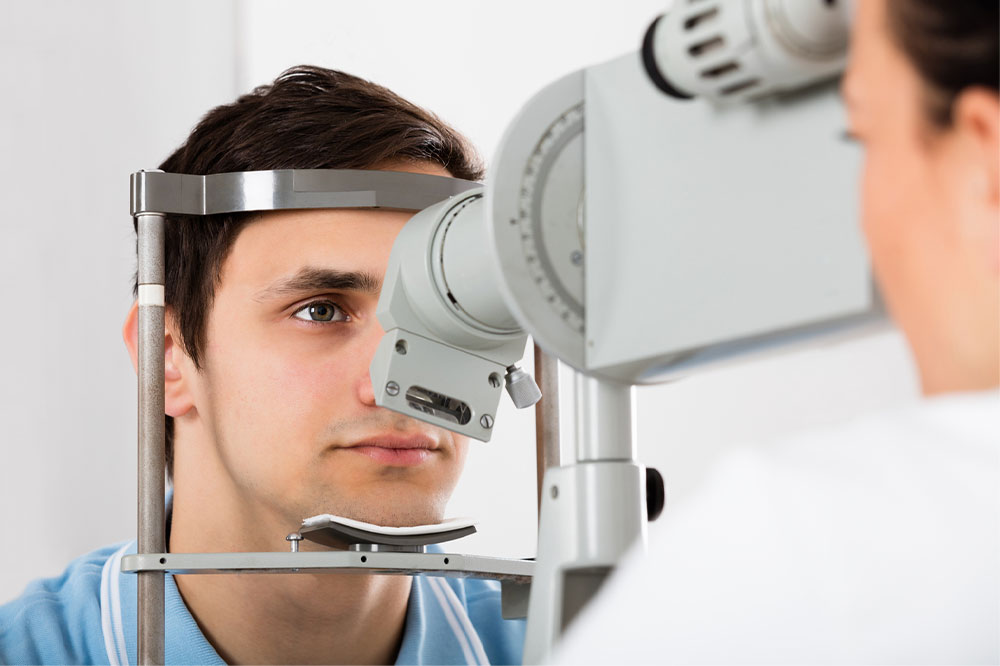
7 unhealthy habits that adversely affect the eyes
Many people tend to take their eye health and vision for granted. For instance, about 20 million people in the country have some type of visual impairment. As people age, vision loss becomes a leading cause of loss of independence, especially among senior citizens. There are several simple daily habits that accelerate the deterioration of one’s vision and overall eye health. Some of the most common habits that affect vision are mentioned below.
Frequently rubbing the eyes
Rubbing the eyes may seem innocuous at first, but doing so regularly can adversely affect one’s vision in the long term. The skin around one’s eyes is incredibly sensitive and vulnerable. Continuously rubbing the eyes can rupture some of the blood vessels under the skin’s surface near the eyes. This causes issues such as dark circles and a puffy appearance near the eyes.
Apart from that, frequently and vigorously rubbing the eyes can lead to health conditions like keratoconus, a disorder in which the cornea becomes thinner and loses its shape, causing vision problems. For example, Keratoconus cannot be completely corrected with glasses or contact lenses. All in all, if one feels itchy in or near their eyes, they can consult their local healthcare provider for solutions instead of mindlessly scratching or rubbing their eyes.
Not having regular eye exams
Getting eye exams on a monthly basis enables people to track their eye health condition. Such exams can be a useful tool to detect conditions, such as age-related macular degeneration, glaucoma, diabetic retinopathy, and cataract, in their initial stages. Skipping such exams can create the possible risk of missing early diagnoses and the chance to treat specific conditions when they are at a nascent, curable stage.
Wearing contact lenses for prolonged periods
While contact lenses have their fair share of benefits, they have one major issue: lenses limit the oxygen supply that reaches the wearer’s eyes. So, if a person wears contact lenses for an extended period (say, eight to ten hours), the lack of oxygen can cause the cornea to swell up and create a gap through which bacteria and pathogens can enter the eyes. Such a condition leads to eye diseases like keratitis, a debilitative infection. Wearing contact lenses for a prolonged period can also scar one’s cornea and negatively affect their vision for good.
Spending too much time in front of screens
An astounding ophthalmic fact is that people do not blink as many times when they are endlessly glued to a screen. Blinking is necessary to keep the eyes lubricated, moist, and clean. Apart from that, blinking constantly stimulates the retina and gives a person’s brain some much-needed rest. So, constantly being exposed to smartphone or laptop screens can have a debilitating effect on a person’s vision.
Even when one does not consider the blinking, too much screen time can indirectly trigger health conditions such as blurred vision, headaches, migraines, burning eyes, and disrupted sleep. Therefore, taking 15- to 20-minute breaks is essential if spending hours in front of a screen is inevitable for people. If one is not professionally obligated to spend time in front of a screen, they must observe digital detox days, wherein one completely ignores all screens and non-essential digital devices.
Not wearing sunglasses outdoors during the daytime
Sunglasses help protect one’s eyes against harmful UV rays and other radiations from the sun. While stepping out of the house, one needs to wear shades to counter this effect. Shades help repeal or reflect these harmful radiations from the sun and prevent eye disorders. If a person’s eyes and cornea are constantly and frequently exposed to sun rays, they can irreversibly weaken their vision.
Therefore, on a sunny day, sunglasses are an essential accessory before stepping outdoors.
Not getting enough sleep
Although sleep has become a luxury for many people due to their strenuous work culture, they must find at least six to eight hours of shut-eye every day. Sleep helps provide rest to the brain and keep the eyes healthy. If one neglects sleep for a period of a few weeks or months, they are affecting their mental health, immunity, and, above all, eye health.
Not consuming nutrient-rich meals
As the saying goes, a person is what they eat. So, not consuming foods rich in vitamins, proteins, carbohydrates, minerals, antioxidants, and other essential nutrients can progressively weaken the eyes in people. Before making drastic changes to one’s meals, people must consult their healthcare provider.
Apart from these habits, forgoing safety goggles while performing cleaning and repair tasks, sleeping with makeup on, and overusing eye drops are also bad habits that affect vision.


